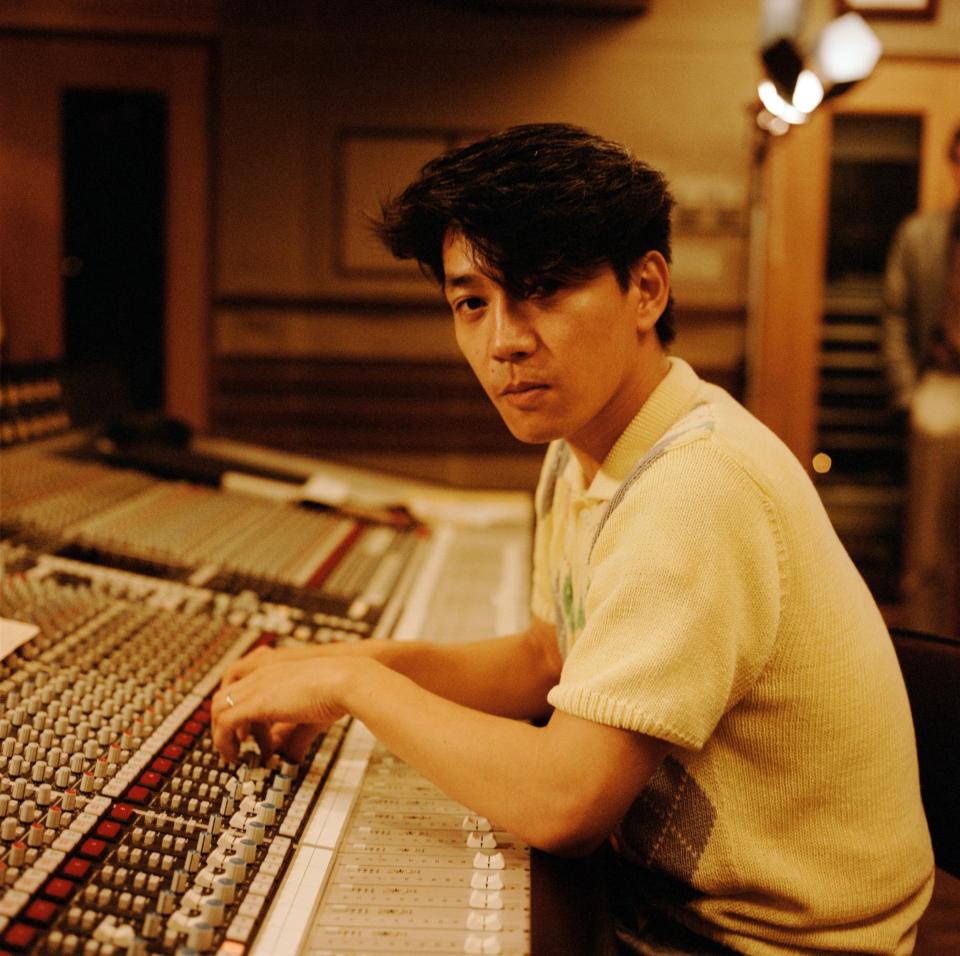Ryuichi Sakamoto, Oscar-winning composer who starred with David Bowie in Merry Christmas, Mr Lawrence – obituary

Ryuichi Sakamoto, who has died aged 71, co-founded the pioneering Japanese electronic-music trio Yellow Magic Orchestra (YMO) and composed the score for the Japanese prisoner-of-war film Merry Christmas, Mr Lawrence (1983), in which he starred opposite David Bowie and Tom Conti; he went on to win an Oscar, a Grammy and a Golden Globe for his music to Bernardo Bertolucci’s The Last Emperor (1987), about the Chinese monarch Puyi, in which he again acted.
He picked up a second Golden Globe for his music to Bertolucci’s Paul Bowles adaptation, The Sheltering Sky (1990), recalling how the director once made him rewrite part of the soundtrack while the 40-piece orchestra waited. “Working on a film is like a journey to an unknown place,” he explained of producing a successful movie score.

In total Sakamoto wrote the music for about 30 films, including Pedro Almodóvar’s mother-daughter melodrama Tacones Lejanos (“High Heels”, 1991), Oliver Stone’s sci-fi mini-series Wild Palms (1993) and Alejandro González Inárritu’s The Revenant (2015), starring Leonardo DiCaprio and Tom Hardy, which he tackled while being treated for throat cancer.
He also created ringtones and sound alerts for the Finnish manufacturer Nokia’s 8800 series of mobile phones, wrote music for the opening ceremony of the 1992 Barcelona Olympics and in 1994 composed an anthem for the Japanese football team. Meanwhile, YMO’s self-titled 1978 debut album and its follow-up Solid State Survivor (1979), contained the musical basis of the Super Nintendo game, setting the style for countless video-game soundtracks.
Ryuichi Sakamoto was born in Nakano City, Tokyo, on January 19 1952, the son of Kazuki Sakamoto, a literary editor, and his wife Keiko (née Shimomoura), a milliner.
He grew up listening to US military radio: “I heard a lot of film music, American pop, classical, a little bit of contemporary classical. And in the depth of night, they would play jazz,” he said. During his daily commute to a Tokyo high school the teenage Sakamoto amused himself by counting the sounds the train made, identifying more than 10 that he would listen out for every morning.
Like many Japanese children he learnt the piano, recalling how one day he stumbled across a work by Claude Debussy. “It was hard to play, but immediately I could feel the genius of this music, and it made me want to write my own,” he told The Daily Telegraph. “For me, Debussy is the door to all 20th-century music.”

Yet unlike fellow Japanese composers such as Toru Takemitsu, the discovery did not take him down the path of western classical music. “I liked The Beatles too much, and the Rolling Stones, and also free jazz, people like John Coltrane,” he explained. “I loved the freedom of improvised music.” While studying harmony, counterpoint and ethnomusicology at Tokyo National University he discovered three large electronic synthesisers and was soon experimenting with their potential.
Sakamoto went on to embrace a new wave of electronic instruments, leading to experiments in fusing global genres. That in turn took him back to where he had started, with studies of impressionism in classical music. “You have to open your ears all the time because anything could happen unexpectedly, anything can be music,” he said, adding that a wrong note could very well be the right way into a fresh musical idea.
By the time he was 25 he was a busy session musician and had produced his first solo album. The following year came YMO, which he founded with Haruomi Hosono and Yukihiro Takahashi, who died in January. Sakamoto later said of the group’s name: “It’s halfway between black magic and white magic, and we’re Asian musicians, so yellow is about right, no?” He described his role as “the composer and the brains”, adding: “They called me ‘the professor’.”
Not long afterwards came the single Riot in Lagos, a seminal moment in the history of dance music. Another single, Behind the Mask, was originally written for a Seiko watch commercial, adapted for Solid State Survivor, and covered by Michael Jackson and Eric Clapton.
From time to time he brought his distinct brand of trans-global fusion music to Britain, and in 2013 he took part in the Southbank Centre’s Meltdown Festival curated by his compatriot Yoko Ono. For many years he lived in New York, where in 2018 he became so frustrated with the background music at Kajitsu, his favourite Japanese restaurant, that he curated a playlist for the chef.
Sakamoto, whose silver hair framed his tortoise-shell glasses, had long been an environmental campaigner. After the 2011 meltdown at the Fukushima nuclear power plant he recorded part of async (2017), his 16th solo album, on a “drowned” piano, coaxing melodies from its warped and swollen insides. “We humans say [the piano] falls out of tune, But that’s not exactly accurate. Matter is struggling to return to a natural state,” he said in the 2017 documentary Ryuichi Sakamoto: Coda, which includes his recording of snow melting in the Arctic.
Ryuichi Sakamoto’s first two marriages were dissolved. He is survived by his third wife, and manager, Norika Sora, by their two children, and by a daughter from each of his previous marriages.
Ryuichi Sakamoto, born January 17 1952, died March 28 2023

 Yahoo News
Yahoo News 
